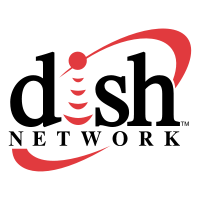 California Assembly Bill 162
California Assembly Bill 162
[Updated March 28, 2013]
[Updated March 24, 2013]
[Updated March 23, 2013]
[Original March 22, 2013]
[Update/Heads-Up: I’ve received a copy of Assembly Member Holden’s Fact Sheet on AB 162, which has been christened the “Broadband Expansion Act.” I’ve rechristened it the “Wireless Industry Gift and Public Exclusion Act of 2013.” In the next day or two I’ll be posting the Fact Sheet, and my point-by-point analysis, rebuttal and corrections to the Fact Sheet.]
The wireless industry has quietly dropped an awful bill, Assembly Bill 162, into the hopper in Sacramento to impose severe new rules requiring mandatory and lightning fast wireless collocation approvals by California local governments.
Assembly Bill 162 is a combination Super Section 6409(a) coupled with a Super Shot Clock. To add icing to the wireless industry’s cake, the bill would effectively eliminate any consideration of whether the applicant has a significant gap in its service, and would define its key terms so broadly as to make nearly every component part of a wireless tower or site (including components not now considered to be either).
Well, really, there’s nothing super about this bill if you’re either a concerned citizen or a local government.
Assembly Bill 162, sponsored by Assembly Whip Chris Holden D-41, started as a housing bill in January. It was gutted yesterday, on March 21, to become an 8-figure gift to the entire wireless industry.
In its now-morphed form, Assembly Bill 162 would add Section 65964.5 to the Government Code to do the following:
1. Parrot the opening of Sec. 6409(a) of the Middle Class Tax Relief Act of 2012 by saying,
(a) Notwithstanding any other law, and pursuant to Section 6409 of the federal Middle Class Tax Relief and Job Creation Act of 2012 (47 U.S.C. Sec. 1455), a local government shall approve and may not deny any eligible facilities request for a modification of an existing wireless telecommunications facility that does not substantially change the physical dimensions of the wireless telecommunications facility.
2. Then the next section would make the failure of a Local Government to act on such a request within 45 days result in the project being deemed approved.
(b)The failure to act on an eligible facilities request within 45 days of receipt of a request shall be deemed an approval of the request. The 45 days shall be tolled if the request is determined to be incomplete. If the request is determined to be incomplete, the local government shall comply with subdivision (c) of Section 65943 of the Government Code.
Section (b) would effectively eliminate any possibility of public hearings in advance of mandatory approvals. The 45 day shot clock would cut in half the time determined by the FCC to be adequate to process collocations. The effective result would be that wireless collocation projects would take priority over virtually every other project considered by a local government.
Section 65943(c) of the Government Code provides for a formal appeal process for projects deemed incomplete by a local government. Since this is already state law, it seems redundant here.
3. Forget about coverage gap proof for collocations. Subsection (c) of Assembly Bill 162 would kill that:
(c) A local government shall not require proof of gap in coverage as part of the approval of an eligible facilities request.
4. Next, the proposed legislation goes on to define key terms:
(d) For purposes of this section, the following definitions shall apply:
(1) “Eligible facilities request” or “request” means any request for modification of an existing wireless telecommunications facility that involves any of the following:
(A) Collocation of upgraded transmission equipment.
(B) Removal of transmission equipment.
(C) Replacement of transmission equipment.
(2) “Substantially change” means any of the following:
(A) The mounting of the proposed antenna on the wireless telecommunications facility would increase the existing height of the wireless telecommunications facility by more than 10 percent, or by the height of one additional antenna array with separation from the nearest existing antenna not to exceed 20 feet, whichever is greater, except that the mounting of the proposed antenna may exceed the size limits set forth in this subparagraph if necessary to avoid interference with existing antennas.
(B) The mounting of the proposed antenna would involve the installation of more than the standard number of new equipment cabinets for the technology involved, not to exceed four equipment cabinets, or more than one additional equipment shelter.
(C) The mounting of the proposed antenna would involve adding an appurtenance to the body of the wireless telecommunications facility that would protrude from the edge of the wireless telecommunications facility more than 20 feet, or more than the width of the wireless telecommunications facility at the level of the appurtenance, whichever is greater, except that the mounting of the proposed antenna may exceed the size limits set forth in this subparagraph if necessary to shelter the antenna from inclement weather or to connect the antenna to the wireless telecommunications facility via cable.
(D) The mounting of the proposed antenna would involve excavation outside the current wireless telecommunications facility site, defined as the current boundaries of the leased or owned property surrounding the wireless telecommunications facility and any access or utility easements currently related to the site.
(3) “Wireless telecommunications facility” means equipment and network components, including towers, utility poles, transmitters, base stations, and emergency power systems that are integral to providing wireless telecommunications services.
The definitions in Assembly Bill 162 are so broad as to encompass nearly every portion of a wireless system, including DAS networks. Moreover, the definitions are in conflict with the plain words of the proposed statue as to what constitutes a substantial change in the physical dimensions of the wireless telecommunications facility.
The definitions (and in part the lack of definitions) would also open the door to the conversion of fully camouflaged sites to morph into ugly monopoles or visible sites. Moreover, the definitions would allow for the mandatory installation of any type of emergency power system (including diesel powered generators and hydrogen fuel cells) at any cell site.
Assembly Bill 162 is one of the worst bills that would essentially kill public input into wireless siting process for collocations in California. It would speed up the process to the point where the public would be denied any effective opportunity to have any meaningful review, much less input, on proposed wireless collocations (which seem to be the bulk of wireless projects in California now).
The sponsor of Assembly Bill 162 is one of the most powerful members of the Assembly, and the owner of CHMB Consulting Firm (a real estate consulting firm in Pasadena). No doubt Mr. Holden’s goal is to promote the rapid deployment of more wireless service in California, but Assembly Bill 162 in its current form is anti-constituent and anti-government. As it is now set out, the Bill amounts to a massive gift to the wireless industry at the expense of the public and local governments.
Members of the public will need to directly communicate with Assembly Member Holden about Assembly Bill 162, as well as their own local governments and elected representatives, if there is to be any chance to maintain meaningful community and local government involvement in wireless tower collocation siting matters in this state.
To read the original housing bill, now struck, with the replacement wireless industry gift language, click to open the PDF: AB 162 Assembly Bill – AMENDED
Here is a link to the current version of Assembly Bill 162 making its way through the California Legislature: http://www.leginfo.ca.gov/cgi-bin/postquery?bill_number=ab_162&sess=CUR&house=B&author=holden
To express your views about Assembly Bill 162 directly to Assembly Member Holden, you can use his web site’s comment form: https://lcmspubcontact.lc.ca.gov/PublicLCMS/ContactPopup.php?district=AD41
Check back here often to find out what’s happening with Assembly Bill 162. Share this post with your friends and your local elected officials (who I hope are also your friends).
Thanks to J.D. for his help making this post even better!










